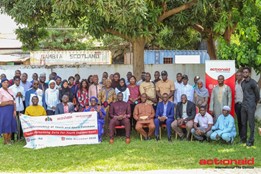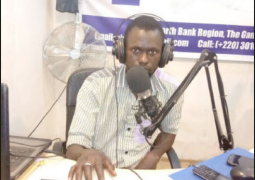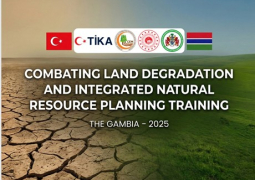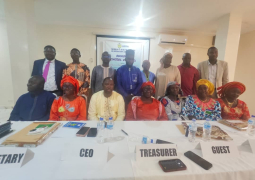
Speaking at the launch, Hon. Bakary Y. Badjie, Minister for Youth and Sports, hailed the initiative as a transformative step in empowering young Gambians.
“For decades, we have faced one persistent challenge, the lack of reliable data on young people,” said Minister Badjie. “This platform will finally allow us to access accurate information on youth engagement, sports participation, entrepreneurship, and even migration trends. It’s a tool that will help us plan better, invest smarter, and ensure every young person is part of the national conversation.”
He added: “We have moved beyond guesswork. From today, our decisions will be guided by evidence — by data that speaks for our youth. This is not just a digital tool; it’s a promise to make every young Gambian count.”
Developed by the Department of Youth and Sports (DoYS) with technical support from ActionAid International The Gambia, the database is designed to serve as a one-stop digital repository of information on youth organisations, programmes, and opportunities nationwide.
Ndella Faye-Colley, Executive Director of ActionAid International The Gambia, described the platform as “more than a technical innovation, it’s a statement of inclusion and empowerment.”
“Without data, young people remain invisible in national planning,” she said. “But with accurate, inclusive data, we can make decisions that reflect their realities, their dreams, and their potential. This database is not just about numbers, it’s about visibility, accountability, and empowerment.”
Faye-Colley emphasised that the platform would enable policymakers, NGOs, and international partners to align their interventions with the real needs on the ground, ensuring that no youth group — particularly those in rural areas or living with disabilities — is left behind.
Abass Bah, Director of the Department of Youth and Sports, described the launch as a long-awaited turning point.
“For years, we’ve needed a system to track youth engagement, skills training, and sports participation,” Bah said. “Now, with this platform, we can finally capture the full picture of youth contributions to national development.”
The database forms part of the broader Youth and Social Cohesion Project, supported by the UN Peacebuilding Programme and other partners. The initiative aims to harness data and technology to promote peace, civic participation, and equitable access to opportunities for young Gambians.





